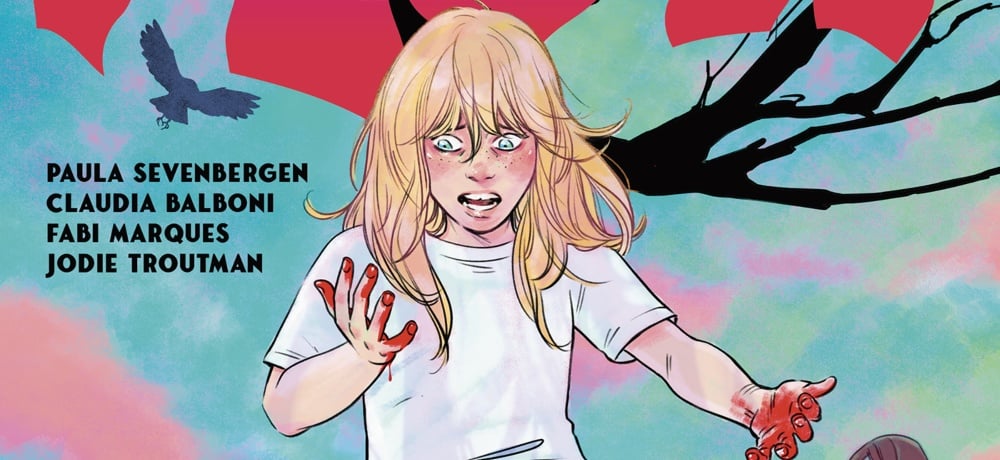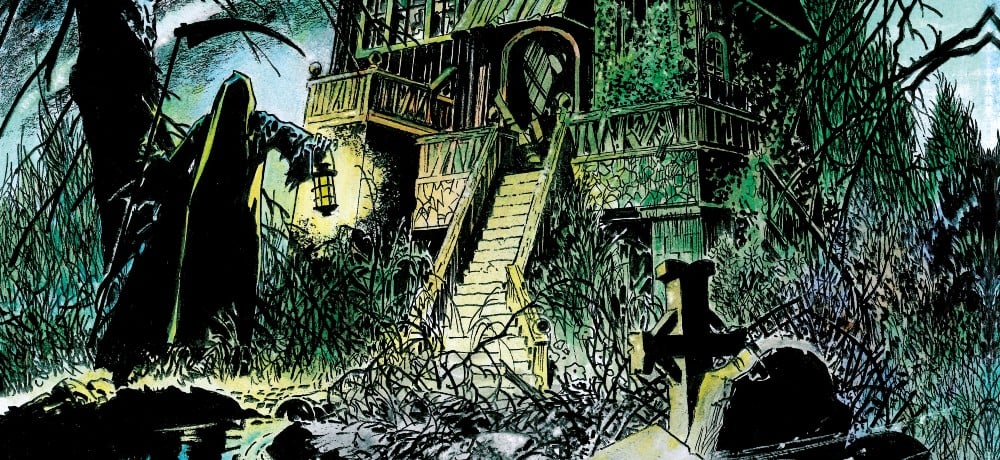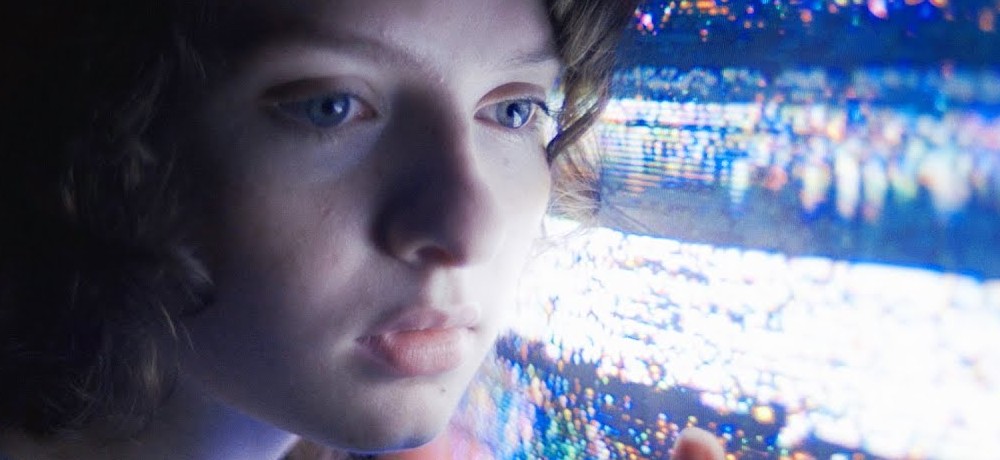






Before delving further into director Jeffrey A. Brown’s The Unheard, it’s important for me to note that this piece is written from the perspective of a hearing person who has experienced losing and regaining hearing due to illness, but I cannot speak to the Deaf experience. Part of the reason why I was so intrigued about this film was that I could relate to the in-your-bones anxiousness that comes with testing, evaluations, operations, and diagnoses that ultimately amount to the most frustrating phrase to receive in a doctor’s office: “We’ll see.”
Unlike films like Hush or A Quiet Place, The Unheard focuses on a protagonist – portrayed by the effortlessly cool Lachlan Watson (Chucky) – who lost her hearing after a bout of meningitis and seeks to regain partial or full hearing through an experimental operation. Once Chloe has the operation, she starts to hear things – perhaps warnings – in the television static of her Cape Cod home. On its own, Chloe’s desire to regain hearing while grappling with the fear of its improbability makes for compelling material to explore. When co-writers Michael Rasmussen and Shawn Rasmussen’s script showcase quiet moments like Chloe leaning into the faucet to see if she can hear the patter of water, her hope and motivations vibrate with sincerity and dread.
After all, this is a horror film, so we almost expect any gain of hearing will amount to something horrible. If the script trusted this looming sense of dread more, it’d break fertile grounds. Unfortunately, the threads between its surface-level story and its combined exploration into a murder mystery don’t quite come together. However, that doesn’t mean it doesn’t have some lovely metaphors to play with on-screen. Without spoiling it, the choice to have voices in the static moved me as a viewer. When hearing loss happens, there’s this constant underlining fear of missing something – a phrase, a word, a sentiment – and that brings a level of confusion and doubt that’s hard to articulate on the screen. When Chloe interfaces with the static, the search for literal meaning crafts a deeper metaphor at play too: What messages are coming through? What gets lost?
Part of the film’s conceit uses a cellphone app to transcribe people around Chloe, but it causes some frustrating blind spots. Sometimes Watson speaks a little too quickly or reads the phone in a way that breaks its realistic portrayal. Often, these apps can catch certain phrases incorrectly or glitches due to poor service areas: Showing the limits of this too would have given a more accurate representation of talk-to-text apps that’d lend more areas for the film to explore Chloe’s frustration and confusion. At times, I wish the camera zoomed into other’s lips more to showcase her comfort with lip-reading and to visually lean more into her viewpoint.
However, Colin Alexander’s (Midsommar) sound design is impeccable. There were moments in the theater when I had to cover my ears because it brought back the feeling of inner-ear infections – when the world feels filtered through cotton balls and this skin-crawling ringing that builds and builds as if your eardrum will explode. A lot of films forget that amidst the spectrum of hearing loss, people can still feel vibrations and pressure in the ears. At times, it’s like your head is stuck in a wind tunnel and when these moments happened audibly on-screen, I was filled with the terror of recognition. For me, that tension-fueled aspect was underutilized – especially in what amounts to a surprise home invasion film. Still, Watson delivers their all in The Unheard, promising even more terror to come from the star that I can’t wait to see.
Movie Score: 3/5